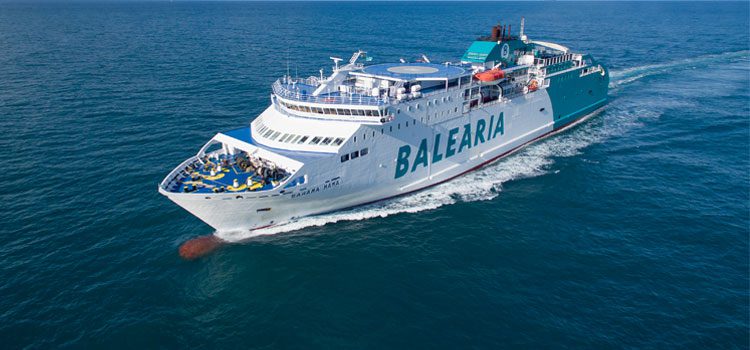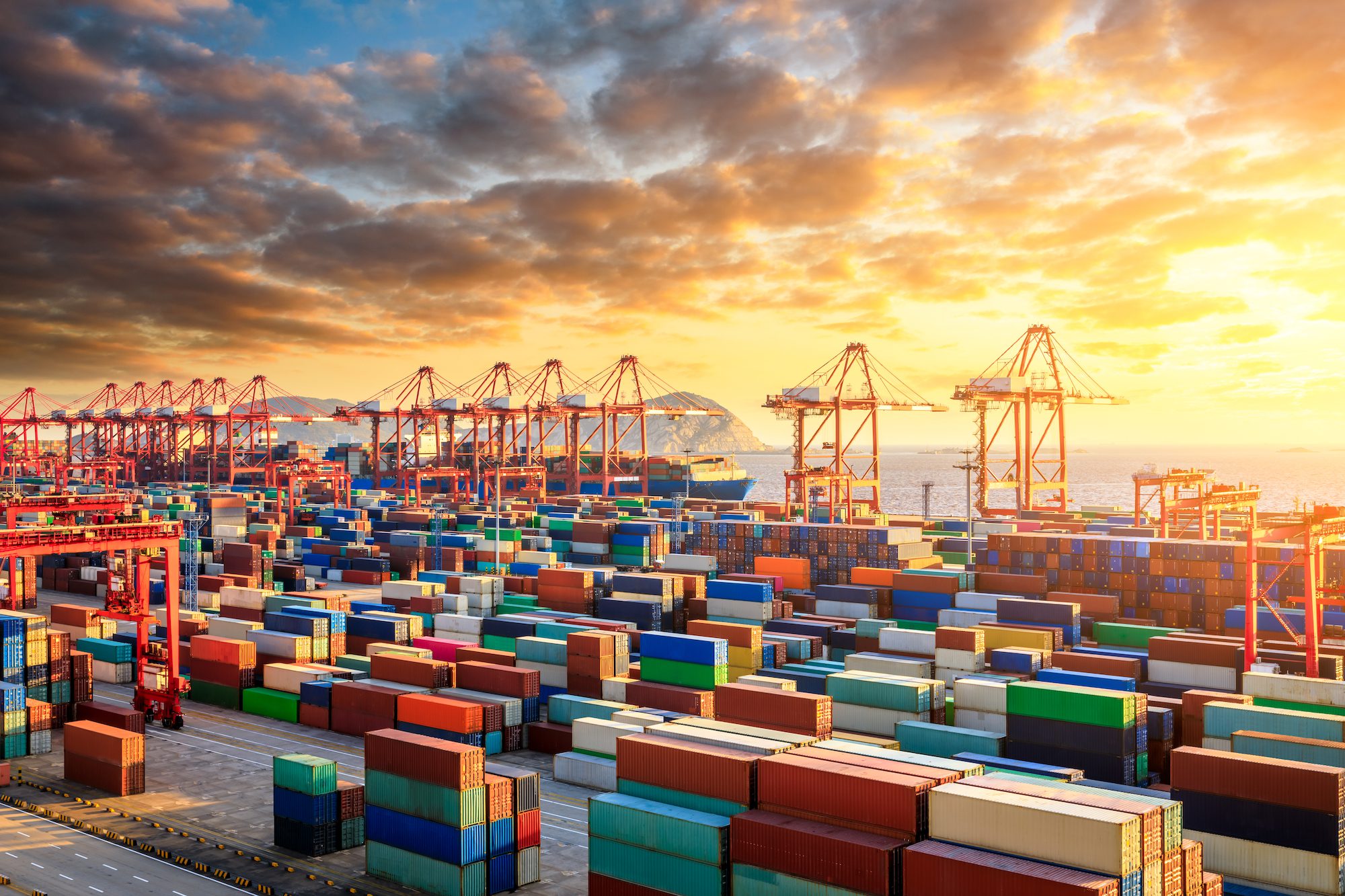Photo courtesy Baleària
Interview by Paul González-Morgan (Marine Strategy) – Adolfo Utor is the President and main shareholder of the Baleària, Spain’s leading shipping company in the transport of passengers and cargo between the Balearic Islands and the Iberian Peninsula (through the ports of Barcelona, Valencia and Denia). Baleària are one of the largest operators in the Strait of Gibraltar connecting Ceuta, Melilla and the Canary Islands with the ports of the Peninsula. Internationally, Baleària have an ambitious expansion plan, with operations extending to Morocco, Algeria, US and the Caribbean.
Utor, always linked to the shipping industry, also chairs the Commission of Regular Lines of ANAVE (association of which he was president from 2009 to 2015) and is a member of the Board of Directors of the Valencian Association of Employers (AVE), among other high-profile positions. He is also the Academic Director of the Chair of Business Culture of the University-Business Foundation (ADEIT) of the University of Valencia.
What are the key factors of your success?
This is, without a doubt, our own and distinct culture. A culture based on innovation, on people, on values, and on the continuous commitment to adapt to change. We consider ourselves dynamic, responsible with corporate citizenship, with obligations and rights, that defend inclusion, the environment and sustainable growth. We know and work so that all our efforts respond harmoniously to our stakeholders, customers, workers, suppliers, shareholders and the society of which we are a part.
Our success is a result of our own convictions, in the clarity with which we approach our transcendent mission each day, and our ability to adapt to change by being innovative.
What are your main objectives for Baleària?
Baleària has two main objectives; firstly, respond to our stakeholders’ expectations by ensuring competitiveness; secondly, to fulfil our transcendent mission in a sustainable way: unite territories by sea and facilitate free trade, the mobility of people, goods, knowledge and culture, and thereby contribute to the progress and welfare of citizens of the territories in which we operate. Therefore, our objectives are to deploy a fleet that is increasingly eco-efficient and to provide excellent services to our customers, generating resources to continue doing what we like the most, building ships and opening new lines.
We are one of the pioneering shipping companies worldwide in the use of Liquefied Natural Gas (LNG), applied to maritime transport. We have been promoting these types of projects for over six years now; a few examples are that we are currently building two ferries powered by this clean energy with an investment in excess of €200M, engine re-fitting for six ferries of our fleet and the commissioning of the first gas generator on-board a passenger ferry last year. In addition, we have strategic alliances with other companies that also work in this area, namely Naturgy, Wärtsilä o Rolls Royce.
It is one of Baleària’s strategic goals is to grow the group’s business project by focusing on and expanding in foreign markets. Passengers coming from the North African lines – where we have an ambitious expansion plan, both in Morocco and in Algeria – have increased by 17% over the last year.
We also work on the implementation of social responsibility policies that allow us to contribute to the development of the territories where we operate. In this respect, we have reinforced our commitment to sustainability by adopting the Sustainable Development Goals (SDGs) of the United Nations, in order to continue innovating and generating wealth in favour of people and the environment.
How is Baleària different from the competition?
Our competitiveness is based on innovation and high capacity to adapt to new market demands, such as the quality of services and actions in terms of sustainability and the environment.
We have a clear desire for continuity, we work thinking long term – we appreciate and look after of our image and reputation as a reference for great value. We believe and comply with our Code of Business Conduct and Ethics, which encompasses social responsibility actions, which are carried out in part through the Baleària Foundation dedicated to culture, environment and solidarity.
We are dedicated to maritime transport, a millenary activity, which has always been present in society. If it grows sustainably, our company will also do so. Our commitment to the well-being of society and the environment is absolute and unconditional. It is our duty to do this together.
We consider our main strength to be the degree of commitment and cohesion displayed by our teams, attributes that result in our ability to be competitive.
You offer a variety of services, which have more demand?
The most mature market is that of the Balearic Islands; it is more stable and more predictable. On the other hand, the routes covering the Strait of Gibraltar are more volatile and subject to many changes depending on the season, partly due to the entry and exit of operators and in part by the strong interventionism of public administrations on both sides of the Strait. Regarding the Caribbean, despite being an emerging market, it has great potential for growth and is in the process of development. We also have a wide margin to increase market share and achieve stability with reference to new routes in the last two years – Melilla (Spain), Nador (Morocco) and Mostaganem (Algeria).
Finally, we are looking forward to our partnership with Fred. Olsen Express in relation to the new routes between the Iberian Peninsula and the Canary Islands.
What other aspects would you highlight about these services?
We have increased our presence in the Port of Valencia; we are the first operator in terms of the volume transported of passengers, vehicles in regime of passage and ro/ro cargo, as well as number of annual port calls. In addition to the daily connections to Ibiza and Mallorca, we added the route to Mostaganem (Algeria) in 2016 – service provided with four weekly calls.
The Strait of Gibraltar is an area of significant importance for the company due to the traffic volume of the Ceuta and Tangier lines from Algeciras, where we are also the leading shipping line in passenger and vehicle numbers.
In your view, what the main challenges facing the maritime sector and in particular the movement of passengers? I believe that governments should pay more attention to the maritime transport sector and the strategic importance of having large local operators that will promote business. In order to achieve this, it is essential to obtain a more competitive Special Registry; specifically about the hiring of 50% of foreign seafarers, we would like to see these procedures simplified and without limitations, or the possibility of homologation of recognised companies in the processing of flag certificates, as it happens in most countries with important fleets.
These two measures would align the Spanish Registry to the rest of the European registers and would facilitate the growth of our fleet, and generate wealth and employment for our territory.
On the other hand, passenger transport by sea has great potential for growth, everything is about improving the quality of ships and services, increase their frequencies, incorporate all the innovations that are available with new technology.
Excellent, frequent, comfortable, entertaining and punctual services. For short distances the maritime alternative is the best alternative.
What new markets do you plan to explore in the next 5 years?
We currently operate in five countries (Spain, Morocco, Algeria, USA and the Bahamas) and we all have an interest in expanding our services. Between the United States and the Bahamas, for example, we operate with the island of Grand Bahama, but we are studying adding new connections with other Bahamian islands. We are also assessing different projects in the Caribbean region; Puerto Rico and the Dominican Republic.
We are also interested in being able to expand services in Europe with new ports in North Africa. We are also focusing on the “motorways of the sea” promoted by the European institutions, a space of growth with a lot of projection.
Copyright (c) Marine Strategy
Enjoyed this interview? You can find additional Marine Strategy interviews here.

 Join The Club
Join The Club











